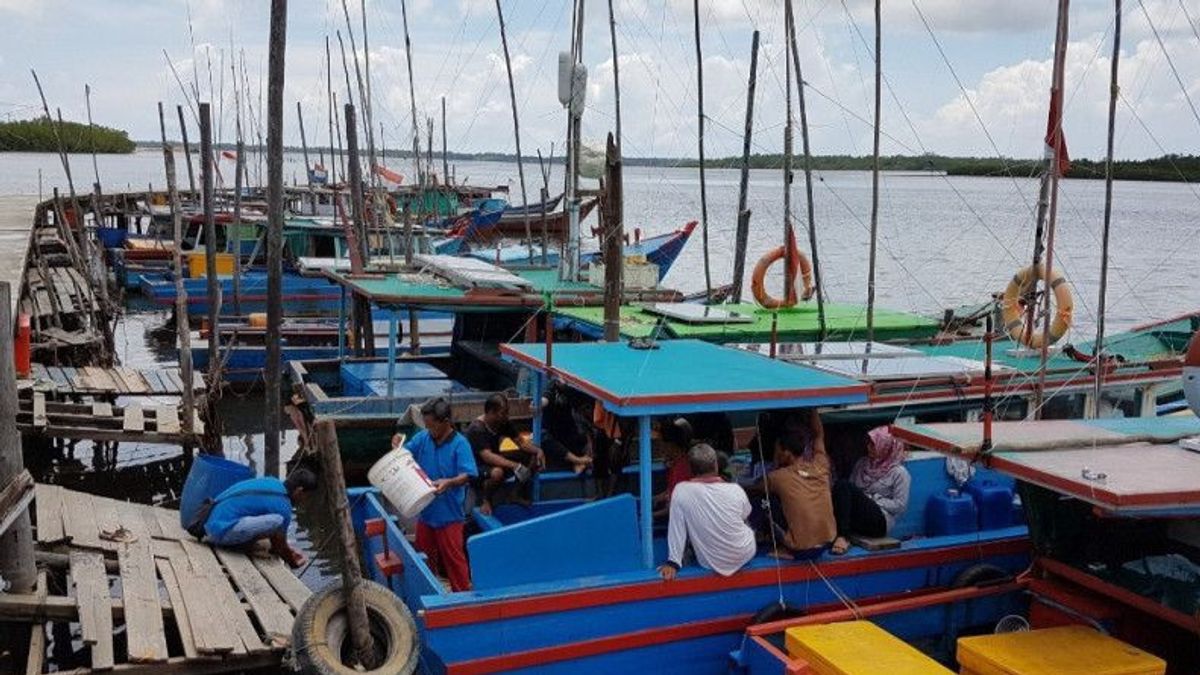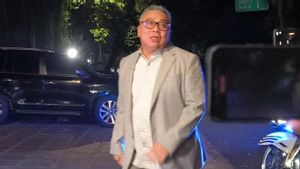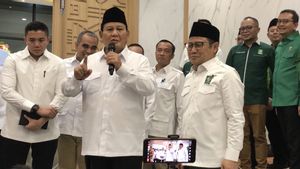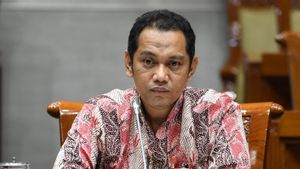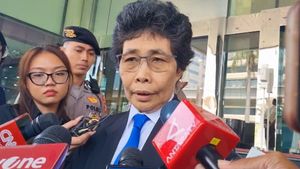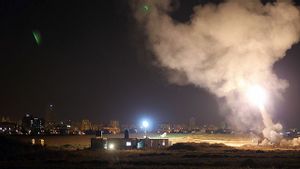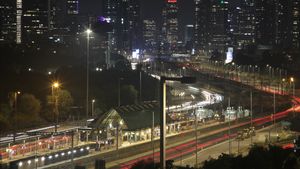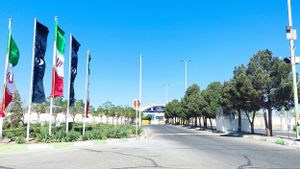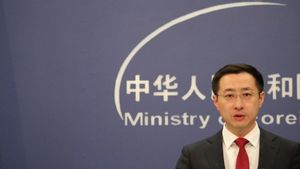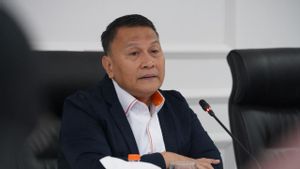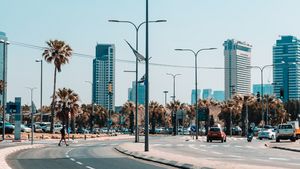JAKARTA - The Indonesian Traditional Fishermen's Association (KNTI) has asked the central and regional governments to take the detention seriously for a number of Natuna fishermen, Riau Islands, in Malaysia.
Chairman of the KNTI Bintan Syukur Regency, Haryanto, said that the problem of local fishermen being detained in Malaysia regarding violating the fishing area boundaries had been repeated. He also encouraged more serious prevention and handling efforts from the government and relevant stakeholders.
"Since 2020, how many fishermen in Bintan have also been arrested by law enforcement officers in Malaysia, some have been imprisoned and some have been sent home immediately," said Syukur in Bintan, Riau Islands (Kepri), Thursday, April 25, as reported by Antara.
KNTI Bintan provides advice and input to the government in handling the case of eight fishermen in Natuna Regency who are currently still being detained by the Malaysian Maritime Strengthening Agency (APMM), precisely in Kuching, the capital of Sarawak.
KNTI asked the local government to provide assistance to the families of the fishermen who were left behind because the detention resulted in disrupting the basic needs of their children and wives.
"The government helps their children's basic needs and education as long as the fisherman is detained in Malaysia," he said.
Then, the government should not only think about repatriating the fishermen from Malaysia, but also to seek fishing gear and the ship used to be sent home.
From several cases, fishermen were detained in Malaysia, then returned to Indonesia without carrying their fishing gear. The fishing gear was confiscated by law enforcement in Malaysia.
"This is still our big homework that has never been done to fishermen after detention in Malaysia," he said.
Syukur pun meminta pemerintah daerah atau pusat melakukan sosialisasi masif mengenai batas melayau kepada nelayan agar mereka mengetahui secara persis lokasi batas teritrial laut antara Indonesia dan Malaysia.
In addition, fishermen need to be strengthened by satellite and radar equipment so that they can easily be monitored by the authorities when carrying out fishing activities, especially in the sea border area with neighboring countries.
Next, the government is expected to form a working group to make it easier to handle and communicate when there is a case of local fishermen being detained in Malaysia.
The Working Group involves all relevant stakeholders, such as the Indonesian Consulate General in Malaysia, Bakamla, PSDKP, to the National Border Management Agency (BNPP) to ranks at the local government level.
"There must be one pokja which is one door of information. So, when our fishermen are detained in Malaysia regarding the capture limit, it will be easier for us to communicate with neighboring countries," he said.
Gratitude also does not deny that there are indeed some traditional fishermen detained in Malaysia because they have been warned several times not to catch fish in their waters, but are still ignored by the fishermen concerned.
"We got the information from several fishermen in Bintan who were detained in Malaysia," said Syukur.
SEE ALSO:
Previously, eight fishermen from Natuna Regency were detained by APMM in the border area between Serasan and Kuching on April 19, 2024.
They used three units of ships with a capacity of 3 GT which were accused of illegal fishing in Malaysian waters, along with a number of evidence from fishing.
Currently, the Riau Islands Provincial Government through the Regional Border Management Agency (BPPD) is actively communicating and coordinating with the Indonesian Ministry of Foreign Affairs and the Consulate General of the Republic of Indonesia (KJRI) in Kuching so that the eight fishermen can be immediately released and repatriated to their homeland.
"We still respect the legal process in Malaysia, while trying to repatriate Natuna fishermen. Even the families of the fishermen who are left behind, we have helped regarding their basic needs," said Head of the Riau Islands BPPD Doli Boniara.
The English, Chinese, Japanese, Arabic, and French versions are automatically generated by the AI. So there may still be inaccuracies in translating, please always see Indonesian as our main language. (system supported by DigitalSiber.id)
